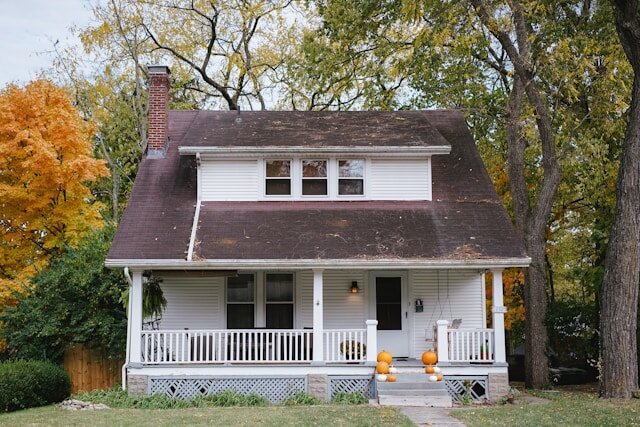Homebuyers do an inspection before investing in a property. It’s a crucial part for both the buyer and the seller. As the seller, you’re hoping the inspection report doesn’t come back with serious problems that can cost you money. The buyer is hoping that all goes well, and their investment is protected. The buyer doesn’t want to purchase a property that will cost money down the road. For the same reason, they will notice a few negative things that can hinder the sale.
In this article, we’ll talk about the major red flags that appear during inspection in San Francisco. You need to avoid or disclose these issues earlier to prevent the sale from delaying further.
As your realtor, I will guide you through these problems so we can discuss them earlier without worrying about the sale falling through.
Roof Issues in San Francisco
Extreme winds, sun, and storms can damage a roof. You can minimize the damage through regular maintenance, but most roofs are exposed to outside elements, and damage is only expected.
Replacing a roof is expensive. Most buyers will question when the roof was last replaced. Any issue with the roof can lead to a problematic sale. Before listing, I will recommend checking the roof structure with the help of an experienced contractor in your area. Look for pooling water, debris buildup, leaks, and missing shingles. Inspect and resolve the problem before listing the house. The buyer will look at the roof carefully, and they can back off from the sale if there is a potential problem.
Electrical Problems
Faulty electrical wiring can lead to fire and safety issues. While most homeowners don’t look for electrical issues directly, the home inspector will. One of the most common issues in an inspection report is incorrect electrical wiring. Flickering lights and outdated switches create problems. It may not be the most expensive repair, but it’s a headache to fix when you’re spending time in a new house. Fixing electrical problems is crucial for the sale and also to protect yourself from future issues (like a lawsuit from the new buyer).
DIY Additions
DIY projects in a house are a red flag. Experienced agents investigate this issue seriously. A newly added fireplace or a newly installed shower can be a problem if not done by a professional. Home renovation projects must follow the building code and be carried out by a licensed contractor. If you have had DIY projects in the house, the chances are that the future buyer would want to take a closer look from a home inspector.
Plumbing Problems
There can be plumbing problems, depending on the home’s age. There could be sewage smells, cracks in the pipe, rusted pipes, and leaking faucets. These are all problematic signs that will reduce the selling price of your house. It’s not uncommon for homeowners to check faucets and pipes even before an inspection.
Inspect the plumbing structure yourself and see if you have faced any issues while living in the house. It’s best to fix minor problems before showing your home to prospective buyers.
Mold and Water Damage
Water damage leads to moisture buildup, creating mold inside the house. Increased humidity can cause mold spores to grow in the air, which will cause breathing issues. If you move into a home with mold, you will notice a sense of suffocation. The air doesn’t feel right, and the problem becomes worse with time.
Mold is not a sign to be ignored, and it can negatively impact your home’s value. Thankfully, repairing mold damage is inexpensive if done earlier.
Jammed Doors and Windows
Your home needs to be functional if it is to qualify for an FHA loan. Doors and windows are essential components of the home, providing functionality, safety, and insulation for a comfortable life. Check the doors. Sometimes it’s a minor problem that can be addressed in 15 minutes. At other times, the issue can be much deeper, indicating a structural problem.
Check the alignment of the doors and windows. Is it easy to open the doors and windows? Do the door or windows rub anywhere? Are there any exposed or rusted screws? These are questions to ask yourself when looking at doors and windows.
Foundation Cracks
Your home rests on the foundation. Over time, the foundation can sink or slip, causing expensive repairs. In California, storms can damage walls, which can lead to foundation damage. Look for any signs of damage. See if the house has settled or shifted in some places.
Foundation repairs are expensive and can be a dealbreaker for potential buyers. According to one estimate, foundation repairs can cost upwards of $48,000. You need to understand structural issues and make an informed decision. You might want to repair your home before selling, or you might choose to sell it as-is. In both cases, you need to disclose the status to future buyers. It’s important to disclose the condition of your home to avoid issues down the road.
Pest Infestations
Pest infestations are a common occurrence in San Francisco. Rodents tend to cause the most problems. According to a 2021 survey, 9.2% of houses in San Francisco have signs of rodent damage. These animals disturb daily life and carry disease-spreading germs. You might want to check your home for the presence of rodents. While rodents don’t cause too much property damage, they can create an unpleasant environment for residents.
You’ll be able to tell if bed bugs, ants, rats, roaches, termites, fleas, and ticks are present on your property. You can contact a pest control company in San Francisco for a thorough and professional solution for pest infestations.
Poor Maintenance
Living in a home requires daily care and maintenance. It’s easy to neglect the house, given our busy schedules. While I can understand the issues, most buyers will take it as a warning sign. Peeling paint, wall stains, non-functional switches, overgrown grass, and outdated fixtures indicate a lack of maintenance. Buyers want to see a clean and loved home. That’s why it’s essential to thoroughly clean and declutter the house before listing.
Environmental Hazards
The presence of banned materials like radon, asbestos, and lead can ring a warning alarm. Exposure to these elements can cause serious health issues. During the inspection, the property inspector will test your home for the presence of these elements. If your property has asbestos or lead, it might need to be safely removed by certified contractors in San Francisco.
A home inspection is a mandatory process for selling in San Francisco. Buyers and property inspectors look for a variety of red flags before signing a contract. If you’re aware of those red flags, you can make an informed decision and resolve the matter before it’s too late.
Are you ready to sell your house in San Francisco? Need help buying a home? Reach out! I am Haley Zhao, your realtor for all real estate matters in San Francisco. Contact me today or book a call, and let’s discuss how I can help you.


